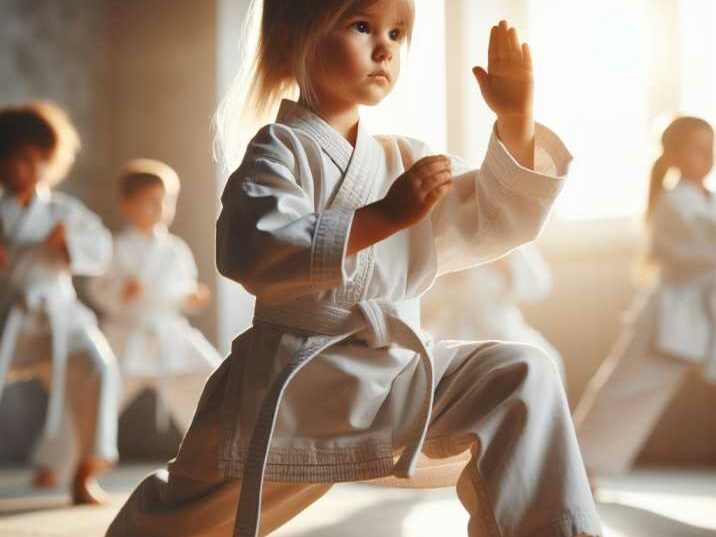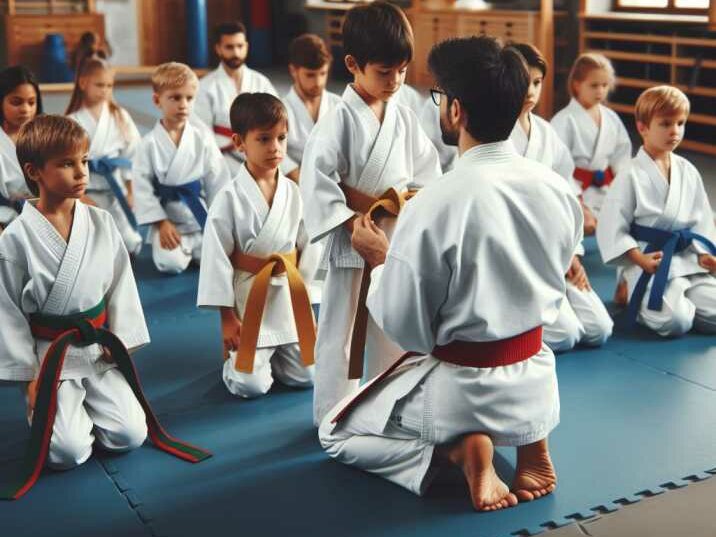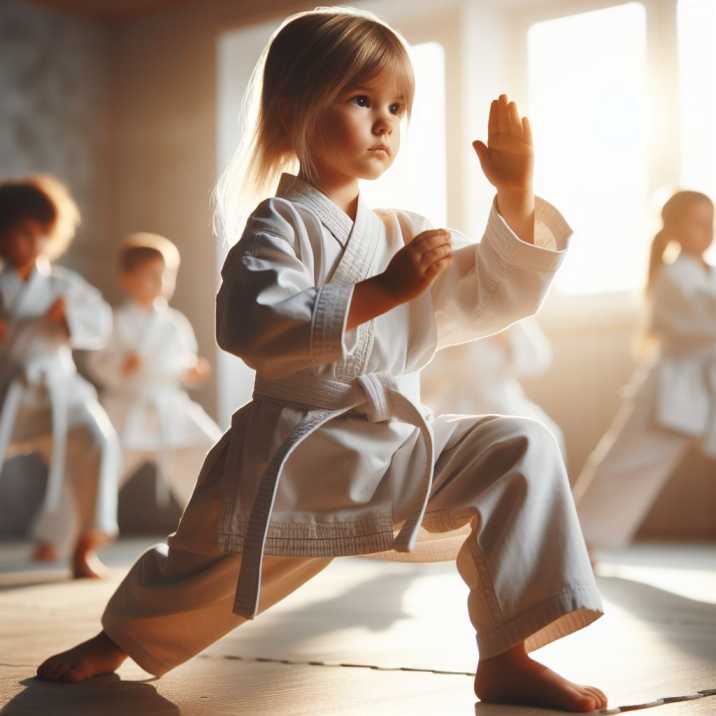Introduction:
Table of Contents
In today’s fast-paced world, where distractions abound and challenges lurk at every corner, it’s essential for children to strong character development traits that will serve them well throughout their lives. While academic education plays a vital role, equally important is the cultivation of qualities like discipline, perseverance, respect, and self-confidence. Karate, a traditional Japanese martial art, goes beyond physical training—it serves as a powerful tool for nurturing these invaluable character development in children. In this article, we’ll delve into how Karate promotes character development and why it’s an excellent choice for children seeking personal growth.

The Benefits of Karate for Character Development:
1. Discipline:
One of the cornerstone principles of Karate is discipline. Through regular practice and adherence to the rules and rituals of the dojo (training hall), children learn the importance of self-control, focus, and commitment. The structured environment of Karate classes instills in them a sense of responsibility and accountability for their actions.
2. Respect:
In Karate, respect is paramount. Students are taught to respect their instructors, fellow classmates, and the art itself. Bowing, a customary practice in Karate, signifies respect and humility. By honoring their instructors and peers, children learn the value of treating others with kindness and consideration.
3. Self-Confidence:
As children progress in their Karate training and master new skills, their self-confidence naturally grows. Overcoming challenges, whether it’s mastering a difficult technique or earning a new belt rank, boosts their self-esteem and belief in their abilities. This newfound confidence extends beyond the dojo and empowers children to tackle obstacles with courage and determination.
4. Perseverance:
Karate teaches children the importance of perseverance in the face of adversity. Learning complex movements and techniques requires patience and resilience. Through repeated practice and dedication, children develop the mental toughness to push through setbacks and emerge stronger on the other side.
5. Focus and Concentration:
In today’s digital age, where distractions abound, cultivating focus and concentration is more important than ever. Karate training demands unwavering attention to detail and precision in execution. By practicing kata (forms) and drills, children learn to block out distractions and stay fully present in the moment.
6. Emotional Regulation:
Karate provides a constructive outlet for children to channel their emotions in a healthy manner. Through controlled breathing techniques and controlled movements, they learn to manage stress and anger effectively. This emotional regulation translates into better decision-making and interpersonal skills both inside and outside the dojo.

Table of Information:
| Character Development | Karate Principle |
|---|---|
| Discipline | Adherence to Rules |
| Respect | Honoring Others |
| Self-Confidence | Mastery of Skills |
| Perseverance | Overcoming Challenges |
| Focus and Concentration | Mind-Body Harmony |
| Emotional Regulation | Channeling Emotions |
Conclusion:
In conclusion, Karate offers a holistic approach to character development for children, instilling values that will serve them well throughout their lives. From discipline and respect to self-confidence and perseverance, the lessons learned on the dojo floor transcend martial arts training—they shape children into resilient, compassionate individuals capable of overcoming any challenge that comes their way. By embracing the principles of Karate, parents can provide their children with not only physical fitness but also invaluable life skills that will empower them to thrive in an ever-changing world.
FAQs:
1. How old should my child be to start Karate?
- Children as young as 4 or 5 years old can begin Karate classes, although some instructors may prefer to start at a slightly older age.
2. Will Karate make my child more aggressive?
- No, quite the opposite. Karate teaches discipline and respect, emphasizing the importance of using martial arts skills responsibly and only when necessary.
3. How often should my child attend Karate classes?
- It varies depending on the dojo, but typically children attend classes 2-3 times per week to see progress and reap the benefits of consistent practice.
4. Will my child get hurt practicing Karate?
- While minor bumps and bruises are possible, Karate instructors prioritize safety and teach techniques in a controlled environment to minimize the risk of injury.
5. Can Karate help my child improve their grades in school?
- While Karate primarily focuses on physical and character development, many children experience improved concentration and discipline, which can positively impact their academic performance.



